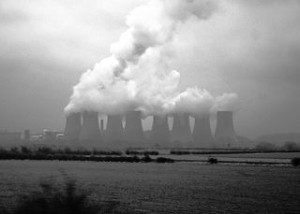Four recommendations for communicating on new carbon rules
 As I’m sure you know, the Environmental Protection Agency released draft rules this week calling for a 30% reduction in carbon emissions from power plants by 2030. This, of course, is not going to happen without a fight, as polluters always claim that new or stricter pollution limits will destroy their businesses and the economy. Initial public reaction to the rule is positive, but polluters and their allies will come out swinging. Here’s how supporters of the new rules can be most effective in the fight to come:
As I’m sure you know, the Environmental Protection Agency released draft rules this week calling for a 30% reduction in carbon emissions from power plants by 2030. This, of course, is not going to happen without a fight, as polluters always claim that new or stricter pollution limits will destroy their businesses and the economy. Initial public reaction to the rule is positive, but polluters and their allies will come out swinging. Here’s how supporters of the new rules can be most effective in the fight to come:
1. Focus on pollution, not climate, as the reason for action
Trying to win a battle focused on stopping the impacts of climate change has a number of problems:
a. It requires educating, and you won’t win a short-term campaign that way. According to Pew Research Center data, only 44% of Americans believe that the earth is warming because of human activity. In my experience, few understand how human activity is causing global warming, even those who believe that it is. In focus groups I have conducted, I have seen a lot of confusion about this, even from climate change believers. One woman told me she was doing her part to stop global warming because she no longer threw trash out her car window. To explain how this works requires explaining how carbon dioxide and other greenhouse gas emissions capture heat instead of allowing it to escape, how that will permanently warm the planet, and what the harmful consequences of a warmer planet may be. This is somewhat complicated, scientific, and outside of most people’s comfort zone. While it may be worth working to increase people’s understanding in the long term, in the short term, those initially inclined to be skeptical will respond to the campaign that meets them where they are, rather than one that is trying to teach them.
b. Most don’t see climate change as immediate, and it’s much harder to motivate people about a future threat than one that is happening now. For example, CBS News just released a poll showing that a majority of the public either believes global warming won’t have major impacts or that they will only happen in the future. Gallup polling has consistently shown global warming in the lowest tier of environmental concerns. When we talk about dire consequences such as flooding and extreme weather events that people don’t see (and don’t understand the connection to, I as explained above), it is easy for them to write us off as extremist fear-mongering.
c. Partisan lines on global warming are already clearly drawn, leading Republicans to dig in as soon as they hear “climate change.” The same Pew data I cited above shows that only a quarter of Republicans believe global warming is caused by human activity. If you make the discussion about stopping human-caused climate change, you have already lost three-quarters of Republicans.
If we have the fight instead about stopping pollution, we do not face the same issues. Americans already understand pollution as harmful, they see it as having negative impacts today instead of at a vague point in the future, and it’s something Democrats and Republicans alike can agree on.
2. Talk about health impacts
Americans care about pollution because they know it affects their health and that of people they care about, especially children and more vulnerable populations. Although carbon dioxide may be the reason for the new rules, the changes we will have to make to achieve a 30% reduction in carbon emissions will also mean less smog, less ozone pollution, fewer asthma attacks and less heart disease. This is far more urgent and immediate for most Americans than the (dire, but little understood) consequences of global warming.
3. Don’t make it about Obama
As much as supporters of Obama might like to give him credit for this bold move, it won’t be helpful for the public as a whole. There is no faster way to turn Republicans the other way than for Obama to be the public face of an issue, and even among those who don’t instinctively mistrust him, making the President the face of it makes the decision political. The EPA, on the other hand, is broadly trusted to do what it is doing here, which is set scientifically-grounded rules about pollution to protect the public health and environment.
4. When attacked, go back to public health instead of defending against jobs claims
The polluter lobby is already arguing that these rules will harm the economy and destroy jobs. Environmental advocates should not get sucked into a tit-for-tat argument about the economic impact of the regulations. For one thing, this is not their area of expertise or one where they have much credibility with the public. For another, as I have argued many times, spending time defending against the other side’s arguments keeps you on their turf and makes it hard to win. Instead, advocates should come out swinging themselves and force politicians to explain how they oppose pollution limits that will protect the public health.
Fortunately, EPA administrator Gina McCarthy understands these recommendations. Here’s what she had to say when she announced the new rules:
”This is not just about disappearing polar bears or melting ice caps,” said EPA Administrator Gina McCarthy. “This is about protecting our health and our homes. This is about protecting local economies and jobs.”
[CC image credit: Alan Zomerfeld | Wikimedia]



